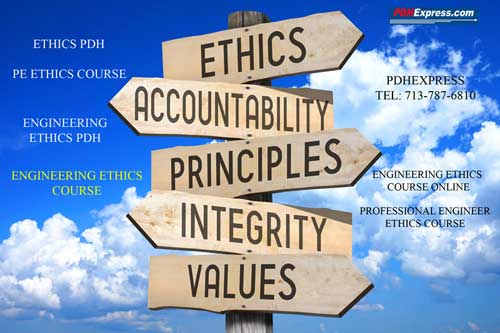In the dynamic world of engineering and land surveying, staying abreast of rules, laws, and ethical standards is paramount. The state of New Jersey, like many others, has specific regulations governing these professions to ensure public safety, environmental protection, and professional integrity. This article serves as a comprehensive guide to the rules, laws, and ethics pertinent to engineers and land surveyors in New Jersey, focusing on the requirements for Professional Development Hours (PDH).
PDH Course – New Jersey Rules, Laws and Ethics for Engineers and Land Surveyors
I. Introduction
In the realm of engineering and land surveying, adherence to rules, laws, and ethical standards is fundamental. These regulations not only safeguard the interests of the public but also uphold the integrity of the professions. The Professional Development Hour (PDH) course in New Jersey is designed to educate and inform professionals about the latest regulations and ethical considerations.
II. Understanding New Jersey Engineering Regulations
Engineers in New Jersey are governed by various regulatory bodies, including the New Jersey State Board of Professional Engineers and Land Surveyors. To practice engineering in the state, individuals must meet specific licensing requirements and adhere to relevant statutes and regulations. Understanding these regulatory frameworks is essential for ensuring compliance and maintaining professional standards.
III. Regulations Specific to Land Surveyors in New Jersey
Land surveyors, like engineers, are subject to regulations established by the Board of Professional Engineers and Land Surveyors. Licensing requirements for land surveyors in New Jersey entail a rigorous process to ensure competence and proficiency. Additionally, ethical guidelines dictate the conduct of land surveying professionals, emphasizing honesty, integrity, and professionalism in their practice.
IV. Professional Development Hour (PDH) Requirements
The PDH course is a mandatory requirement for engineers and land surveyors seeking license renewal in New Jersey. This course aims to enhance professionals’ knowledge of regulatory updates, ethical considerations, and emerging trends in their respective fields. Engineers and land surveyors must fulfill specific PDH credit requirements through approved activities to maintain licensure.
V. Importance of Ethics in Engineering and Land Surveying
Ethical considerations are intrinsic to the practice of engineering and land surveying. Professionals in these fields encounter various dilemmas and moral obligations throughout their careers. Upholding ethical standards not only ensures the integrity of projects but also fosters trust and credibility with clients and the public.
VI. Compliance with Environmental Laws
Environmental regulations play a significant role in engineering and land surveying projects, particularly concerning land development and infrastructure construction. Professionals must navigate complex legal frameworks to ensure projects comply with environmental standards and mitigate potential impacts on natural resources and ecosystems.
VII. Professional Conduct and Responsibility
Maintaining professional conduct is imperative for engineers and land surveyors to uphold the reputation of their professions. Ethical lapses or misconduct can have severe consequences, including legal liabilities and damage to one’s career. Adhering to ethical principles and codes of conduct is essential for fostering a culture of accountability and trust within the industry.
VIII. Continuing Education and Lifelong Learning
Continuing education is vital for engineers and land surveyors to stay updated with advancements in their fields and maintain licensure. Pursuing professional development opportunities allows professionals to expand their knowledge, skills, and competencies, ensuring they remain proficient and relevant in a rapidly evolving industry.
IX. Case Studies and Real-Life Examples
Examining real-world scenarios and case studies provides valuable insights into the ethical and regulatory challenges faced by engineering and land surveying professionals. By analyzing these cases, professionals can gain a deeper understanding of best practices, ethical decision-making, and risk management strategies.
X. Future Trends and Emerging Issues
The landscape of engineering and land surveying is continually evolving, driven by technological innovations, regulatory changes, and societal demands. Professionals must anticipate future trends and emerging issues to adapt proactively and address new challenges effectively. Embracing innovation and sustainability will shape the future of these professions in New Jersey and beyond.
XI. Conclusion
In conclusion, navigating the rules, laws, and ethics governing engineering and land surveying in New Jersey requires diligence, integrity, and a commitment to lifelong learning. The PDH course serves as a vital tool for professionals to stay informed, compliant, and ethically responsible in their practice. By upholding the highest standards of professionalism and ethical conduct, engineers and land surveyors contribute to the safety, sustainability, and prosperity of communities across the Garden State.


